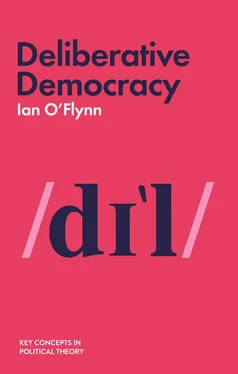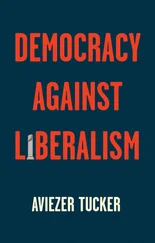Today, deliberative democracy is central to theoretical discussions of the meaning and value of democracy and it is also a vibrant object of empirical concern. As such, it features prominently in a range of different academic fields, including (though certainly not limited to) political philosophy, political science, international relations, legal theory, comparative politics, public administration, political psychology, environmental politics, political sociology, planning and policy analysis (Kuyper 2018). Ideas drawn from these bodies of literature have been influential in parliamentary committees, regulatory bodies, and public corporations. They have also been influential at various points in public administration, in such fields as priority-setting in health care, decisions on land-use planning and establishing environmental standards. And they have also been influential in arguments about governmental reform more generally, including electoral system reform and the reform of second chambers (see, e.g., Beswick and Elstub 2019; James 2004; Parkinson 2007).
In mass democracies, legislative decision-making will inevitably take centre stage – a fact reflected in a great deal of early writing on deliberative democracy (e.g., Bessette 1994; Uhr 1998; Steiner et al. 2004). However, deliberative ideals have also inspired a worldwide movement of activists and practitioners concerned to improve the quality of democracy ‘from the bottom up’ (cf. della Porta 2013; Drake 2021). Some of these activists and practitioners may not have come across the term ‘deliberative democracy’ as such. Moreover, their goals may be very different. The climate change movement is not the same as the feminist movement; the Umbrella Movement in Hong Kong is not the same as the Araucanía Movement in Chile; the Black Lives Matter movement is not the same as the Los Indignados movement in Spain; and so on. But what unites them is the belief that governments should pay attention to what ordinary people have to say and give reasons for their decisions that any reasonable person could be expected to endorse (cf. Holdo 2019; Nummi et al. 2019).
Even so, the lingering suspicion is that deliberative democracy is unrealistic – perhaps utopian. According to some critics, deliberative democrats fail to appreciate what politics is all about; according to others, they fail to appreciate what people are really like. It must be obvious that the shift from (deliberative) theory to (deliberative) practice would require not just a fundamental restructuring of many long-established democratic norms and institutions – for example, the view that democracy is best understood in terms of majority rule, or the view that politics is best understood in terms of a competition for scarce resources – but a concomitant change of political mindset. Critics doubt that change on this scale is actually possible; some doubt that it is even desirable.
To get a sense of what is at issue here, let us begin by considering Michael Walzer’s claim that democratic societies would be ill-advised to overemphasize the importance of deliberation or to seek to make it central to their understanding of democracy. Yes, we should make some room for deliberation, but only, he contends, ‘in the larger space that we provide for more properly political activities’ (1999, 68). Walzer’s list of ‘properly political activities’ includes organizing, mobilizing, demonstrating, debating, lobbying, bargaining, fundraising, campaigning and voting. Each of these activities may involve deliberation, but none of them is fundamentally deliberative – which, in Walzer’s view, is probably just as well.
Take, for example, bargaining. The parties to a bargain may each want to reach an agreement that is fair, and they may agree to deliberate together about what would be fair. But in bargaining, the parties do not focus on the merits of the case (Barry [1965] 2011, 86–8). While they may seek an outcome that is fair to all sides, they do not think of themselves as engaged in a shared endeavour to arrive at an agreed judgement. In a bargain, one party does not try to convince the other party that the better arguments are on its side. Rather, it tries to convince the other party of the advantages that will accrue to it if it accepts the terms that it is offering. In the words of Adam Smith: ‘It is not from the benevolence of the butcher, the brewer, or the baker that we expect our dinner, but from their regard to their own self-interest. We address ourselves not to their humanity but to their self-love, and never talk to them of our own necessities, but of their advantages’ ([1776] 1976, 27). Assuming that both parties are equally free to walk away from the negotiation table, a bargain will be reached only when each of them considers it advantageous to do so (O’Flynn 2015, 210–11).
Or consider debating. In ordinary usage, the term is often treated as a synonym for deliberation. And in practice the two may easily feature within the same communicative or discursive process. But while, for example, party leaders participating in televised debates at election time do give reasons for their policies – reasons they seek to impress upon a broader audience – they do not listen to one another with an open mind or seek to arrive together at an agreed judgement (cf. Davidson et al. 2017). As Walzer puts it: ‘A debate is a contest between verbal athletes, and the aim is victory. The means are the exercise of rhetorical skill, the mustering of favourable evidence (and the suppression of unfavourable evidence), the discrediting of the other debaters, the appeal to celebrity, and so on’ (1999, 61). So, while both deliberation and debating are forms of communication, and while both involve an exchange of reasons, the aim in each case is different. In deliberation, the aim is an agreed judgement or a shared view, while in debating the aim is to win the audience over to your cause – as often as not, through point scoring and the selective use of information.
Now, Walzer’s point is not just that deliberation is often the junior partner in political life, but that it should probably remain so. We should refrain from treating it as a properly political activity in its own right and, by extension, from treating it as central to our conception of democracy (cf. Gutmann and Thompson 1999, 255). As Walzer defines it, deliberation denotes ‘a particular way of thinking: quiet, reflective, open to a wide range of evidence, respectful of different views’ (1999, 58). So described, it seems more suited to the academic seminar or, better, jury room than to the cut-and-thrust of daily politics (1999, 62). For obvious reasons, we expect the members of a jury to be impartial or disinterested; we expect them to carefully weigh up the available evidence, to seriously consider alternative possibilities, and to focus their attention solely on reaching the correct verdict. However, political life is very different. It is, in Walzer’s view, marked by the ‘permanence of conflict’ and, as part of that, by the perpetual struggle for ‘wealth and power’ (1999, 67). It is about interests, identity and ideology, and the ‘endless’ struggle for control.
For Walzer, then, the problem with deliberative democracy is that it is out of kilter with political reality. While we should make room for deliberation, we should be careful not to allow it to distract us from those other ‘properly political’ activities that (he believes) can really make a difference to our lives. For instance, in a world dominated by powerful interest groups, what ordinary people really need to do is to organize, to pool their resources, to mobilize, to demonstrate, to campaign, to vote in consort etc. (1999, 68–9). For ‘while legitimacy is strengthened if good arguments can be made about the substantive issues at stake, the victory is rarely won by making good arguments’ (1999, 66).
Читать дальше












